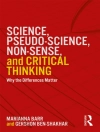Packed with creative, effective ideas for bringing mindfulness into the classroom, child therapy office, or community, this book features sample lesson plans and scripts, case studies, vignettes, and more. Leading experts describe how to harness the unique benefits of present-focused awareness for preschoolers, school-age kids, and teens, including at-risk youth and those with special needs. Strategies for overcoming common obstacles and engaging kids with different learning styles are explored. Chapters also share ways to incorporate mindfulness into a broad range of children’s activities, such as movement, sports, music, games, writing, and art. Giving clinicians and educators practices they can use immediately, the book includes clear explanations of relevant research findings.
Inhoudsopgave
Foreword, Susan Kaiser Greenland
Introduction: Toward a Model of Teaching and Learning Mindfulness, Christopher Willard
I. Bringing Mindfulness to Youth
1. Mindfulness with Elementary-School-Age Children: Translating Foundational Practices from the Clinic to the Classroom, Lindsey Knowles, Matthew S. Goodman, & Randye J. Semple
2. Teaching Mindfulness to Captive Teens in the Classroom, Richard Burnett
3. Mindfulness with Special-Needs Populations, Wynne Kinder & Christen Coscia
4. Teaching Mindfulness across Differences: A Spectrum of Perspectives, Betsy Hanger
5. Child Development: Attunement, Attachment, and Emerging Qualities, Lesley Grant
6. ‘Right Now, We’re Not Meditating’: Working with Youth Who Challenge Us, Jo Anna Harper
7. Mindfulness-Based Substance Abuse Treatment with Probation-Involved Youth, Sam Himelstein
8. Cultivating Rootedness and Connectedness in a Digital Age, Ozum Ucok-Sayrak & Gregory Kramer
9. Mindful Parenting: A Mindfulness Course for Parents in Mental Health Treatment, Susan Bögels
II. Bringing Mindfulness to Life
10. Yoga: Reaching Heart and Mind through the Body, Jennifer Cohen Harper
11. Movement and Dance, Suzi Tortora
12. Mindfulness in Sports, Amy Saltzman
13. The Young and the Hungry, Marcella Wuchler Cox, & Char Wilkins
14. Mindfulness in Nature, Iman L. Khan
15. Mindfulness with a Beat, Betsy Rose
16. Mindfulness and Art, Vanessa C. L. Weiner
17. Mindful Games, Deborah M. Plummer
18. The Contemplation Music Writing Project: ‘Get into It, and Get It Out’, Jeffrey Pflaum
III. The Science of Mindfulness
19. Mindfulness Training for Children and Adolescents: Updates on a Growing Science with Novel Applications, David S. Black, Marvin G. Belzer, Randye J. Semple, & Brian M. Galla
20. Mindfulness, Executive Function, and Attention-Deficit/Hyperactivity Disorder: Bringing It All Together, Mark Bertin
21. Neurobiological Models of Meditation Practices: Implications for Applications with Youth, Willoughby Britton & Arielle Sydnor
Index
Over de auteur
Christopher Willard, Psy D, is a clinical psychologist and educational consultant with a specialty in mindfulness. Based in Boston, he speaks on the topic of mindfulness and meditation with young people nationally and internationally, and teaches at Harvard Medical School. Dr. Willard is on the board of directors of the Institute for Meditation and Psychotherapy and is President of the Mindfulness in Education Network. He has been practicing sitting meditation since 1999. He is coauthor of The Mindfulness Matters Program for Children and Adolescents: Strategies, Activities, and Techniques for Therapists and Teachers and coeditor of Teaching Mindfulness Skills to Kids and Teens, among other books. His website is www.drchristopherwillard.com.
Amy Saltzman, MD, is a holistic physician and mindfulness coach whose passion is supporting people of all ages in enhancing their well-being and discovering the Still Quiet Place within. She is recognized by her peers as a visionary and pioneer in the fields of holistic medicine and mindfulness for youth, and her current work focuses on sharing mindfulness with school-age youth in socioeconomically diverse school and community settings. In collaboration with the Department of Psychology at Stanford University, she has conducted two research studies evaluating the benefits of teaching mindfulness to child–parent pairs and to children in low-income elementary schools. To support others in discovering the joy and peace of the Still Quiet Place, Dr. Saltzman has written the book A Still Quiet Place: A Mindfulness Program for Teaching Children and Adolescents to Ease Stress and Difficult Emotions and created two CDs, Still Quiet Place: Mindfulness for Young Children and Still Quiet Place: Mindfulness for Teens. Her website is www.stillquietplace.com.












